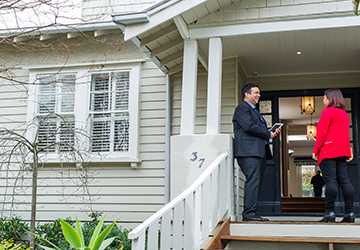The real estate market is a competitive one. A slight mistake can cost you not just a potential buyer but also a significant amount of profit. That's why it's crucial to avoid common property-selling mistakes that could dent your chances of making a successful and profitable deal. This article will delve into the top seven pitfalls that property sellers commonly encounter and how to navigate them for smooth and sound real estate transactions.
The Importance of Preparation in Real Estate
Before we dive into the specific pitfalls to avoid, let's establish the necessity of adequate preparation. Selling a property is more complex than putting up a 'For Sale' sign and waiting for a buyer to appear. Proper planning and strategy can go a long way in helping you boost property sales and achieve a deal that aligns with your expectations.

Poor Property Presentation
First impressions matter. When a potential buyer visits your property, the initial image can make or break a sale. Many sellers neglect this aspect, assuming that buyers will look past superficial flaws.
To boost property sales, consider hiring a professional stager or taking the time to declutter and clean the property yourself. A neat, well-lit, fresh-smelling home is much more inviting, increasing your chances of profitable sales.
Neglecting Market Research
Understanding the real estate market is crucial for setting the right price for your property. Many sellers either overprice or underprice their homes, harming profitable real estate transactions.
To avoid this mistake, consult a real estate agent who understands the local market. They can help you set a competitive price that will attract buyers.
Ignoring Repairs
People want to buy a property that requires immediate repairs if they're looking for a project or a bargain. Failing to address essential fixes could be costly, leading to lower offers or causing deals to fall apart during the inspection phase.
Carry out all necessary repairs before listing the property to boost property sales.
Inadequate Marketing
You may have a stunning property, but you will only find a buyer if people know it's for sale. Poor marketing strategies can significantly slow down the selling process.
Invest in high-quality photographs and create a virtual tour to make your listing more appealing.
Being Emotionally Involved
It's natural to be emotionally attached to a property, especially if you've lived there for many years. However, emotional involvement can lead to poor decision-making, such as refusing reasonable offers because they need to meet your sentimental valuation of the property.
Not Being Flexible with Showings
One of the fastest ways to boost property sales is by making the property available for viewing as often as possible. If you limit availability, you also limit the number of potential buyers who can see your home, which could lead to a longer time on the market and a lower selling price.
Ignoring Professional Help
Many people try to sell their property themselves to avoid paying a commission to real estate agents. While this might seem like a way to increase profit, it often leads to lower offers and more extended periods on the market.
Professional help can be invaluable in navigating contracts, negotiations, and the complexities of the real estate market. The commission you pay an agent will likely be offset by a higher selling price and more profitable real estate transactions.
Some Additional Points
The Hidden Cost of Quick Decisions
In the rush to sell a property, some homeowners need to understand their implications before making quick decisions. Quick conclusions may seem convenient, but they can have hidden costs that chip away at your profit margin and can make the transaction less straightforward than you'd hoped.

Lack of Legal Review
Legal documents are complicated, and if you're unfamiliar with the jargon, you might miss some critical clauses. While skipping legal advice might save you some money initially, it can lead to significant issues down the line, impacting profitable real estate transactions. Always have an attorney review any legal documents or agreements in selling your property.
Poorly Timed Sale
Timing is everything when it comes to real estate. While waiting for the market to be in your favor is not always possible, selling during a downturn can seriously affect your profit. Take the time to study market trends or consult with a real estate agent who can offer guidance on the best timing to boost property sales.
Underestimating Closing Costs
Many sellers must remember that selling a home comes with costs, including commissions, inspections, and potentially even repairs requested by the buyer. These costs can quickly add up, reducing the amount you walk away with. A detailed understanding of closing costs can help avoid common property selling mistakes.
Ignoring Post-Sale Responsibilities
Selling your property doesn't necessarily mean you're entirely off the hook. Depending on the agreement, you might have responsibilities post-sale, like cleaning or making minor fixes. Preparing for these often-overlooked tasks can add stress and costs, hampering your overall experience and possibly affecting profitable real estate transactions.
No Contingency Plans
Having a backup plan is a wise strategy. Whether it's a sudden drop in the market or an unexpected personal event that forces you to postpone or cancel the sale, being prepared for such situations can save you from making rushed and costly mistakes. Contingency planning allows you to adapt to circumstances without compromising your chance to boost property sales.
Conclusion
Selling a property is a complex process that involves various factors. By being aware and steering clear of these seven pitfalls, you can increase your chances of closing a deal that is not only quick but also profitable. Always consult professionals and do your market research to avoid common property selling mistakes and enjoy a smooth, rewarding experience.


